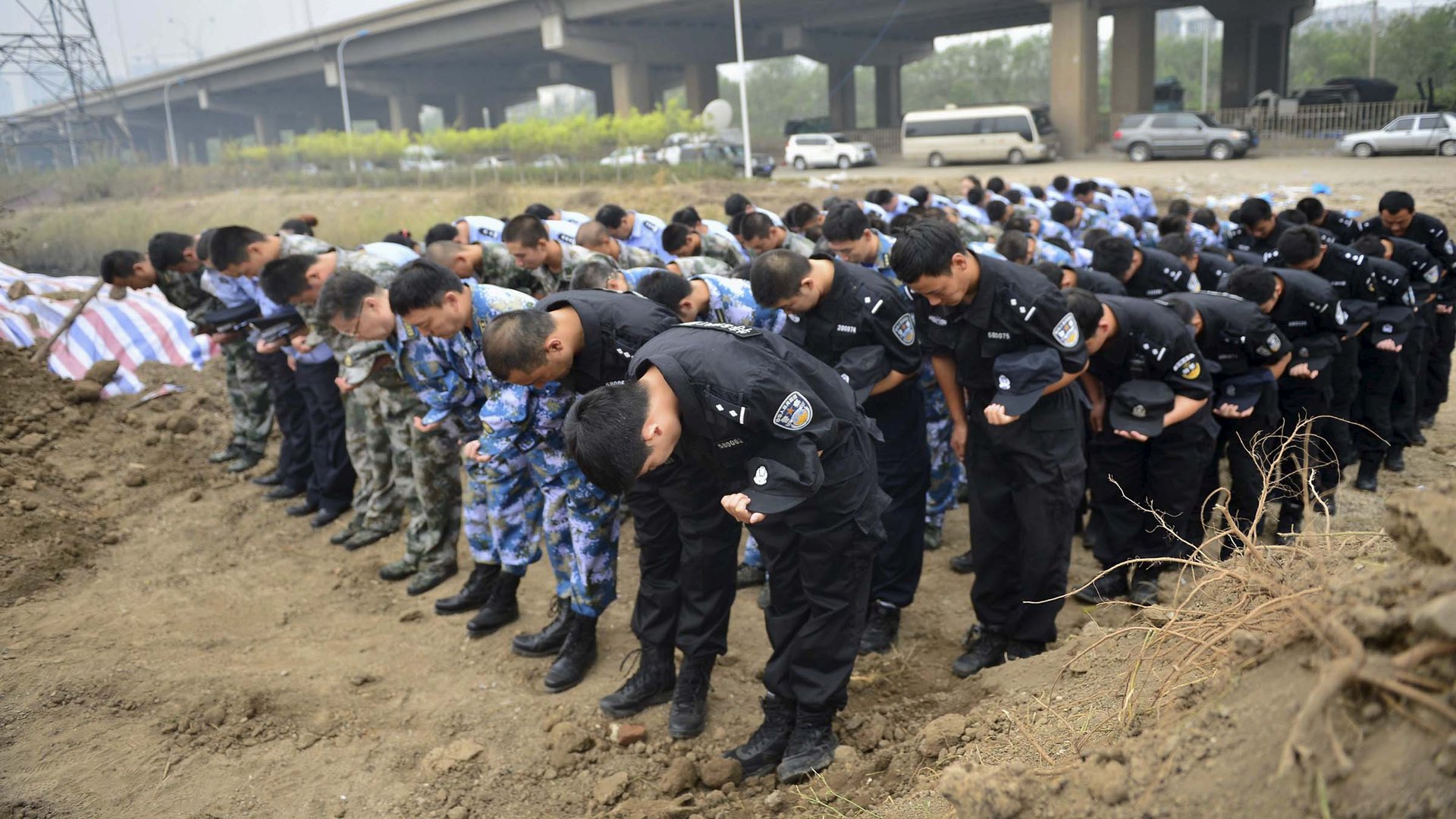Chinese state media’s surprising suggestion for Tianjin blasts: actually tell people what’s happening
Soon after a fire caused multiple explosions at a warehouse storing dangerous chemicals in Tianjin, the Chinese government shut down 50 websites, including news sites, for “spreading rumors.” These included ones carrying inaccurate reports that over 1,000 people had died, which wouldn’t have helped the rescue effort, but they were unlikely to hinder it either—the heavy-handed approach seemed typical of the government’s response to disasters.


Soon after a fire caused multiple explosions at a warehouse storing dangerous chemicals in Tianjin, the Chinese government shut down 50 websites, including news sites, for “spreading rumors.” These included ones carrying inaccurate reports that over 1,000 people had died, which wouldn’t have helped the rescue effort, but they were unlikely to hinder it either—the heavy-handed approach seemed typical of the government’s response to disasters.
The government censorship machine has issued orders about what can be reported, banned journalists from posting on social media, and in some cases harassed foreign journalists reporting on the scene, as Reporters Without Borders notes. One activist was even detained for nine days for retweeting an inaccurate social media post about the explosions.
But alongside the media crackdown, a curious thing is happening—Chinese state media is calling for greater government transparency, and even launching serious investigations of its own into the companies involved in the disaster. The Chinese government’s relationship with journalists should be more like the relationship Western governments have with reporters, some of the largest state media outlets now say.
The People’s Daily, an official newspaper of the ruling Communist Party, has at least twice criticized the Tianjin municipal government for not being more open with journalists. The government needs to provide the public with an honest assessment of the potential damage caused by the blast, not play down health fears, death tolls, or bury news that made it look bad, the People’s Daily wrote on Aug. 19. It also argued for more and better press releases and a more professional spokesperson to keep real information flowing.
The Global Times, a state-backed newspaper known for its knee-jerk nationalistic editorials, took the unusual step of criticizing the Tianjin municipal government for failing to issue statements, publishing information late, and sending low-ranking officials to press conferences. “Fighting against this calamity must have been the main task of the city that has exceeded all else since the explosions,” it wrote in an editorial. “Unfortunately, public opinion has not felt this.”
This should be pleasing to any proponent of free speech, but the motives behind such calls probably have little to do with the media believing the Chinese people have a right to know what’s going on.
Instead, recent calls for openness appear to be aimed at preventing the kind of rumors the government so dislikes, before they appear. Taking a prevention-is-better-than-a-cure approach means that the government can avoid nasty rumors that make it look bad, and avoid becoming unpopular by shutting down websites after the fact, state media argues.
An open government is more about preserving the government than doing a service for the people, the Global Times explains: “A single slow reaction can lead to rumors running riot. And in turn, public confidence in the government will continue to fall.”